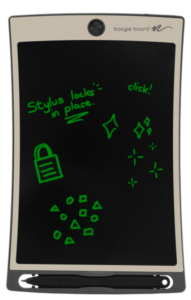If you’re anything like me, you’ve had infrequent times in your life when you’ve temporarily lost your voice due to a viral infection or yelling too much at an athletic event. The larynx—the structure at the upper part of the human trachea that contains the vocal cords—becomes stressed and inflamed resulting in laryngitis. Typically after several days of resting the vocal cords by not talking, your voice returns to normal.
 When our youngest daughter was around eight years old, she had a yellow, male cockatiel named Simba who had quite a repertoire. Simba would recite “Joy to the world the Lord is . . . “, but much to our chagrin, he never learned to finish with the word “come.” He even whistled familiar tunes. Then one day Simba suddenly got very sick and almost died. In fact, it happened a second time before we realized the fresh parsley we were feeding him [homegrown from our garden—no pesticides!] is poisonous to birds. OH NO! We were unintentionally responsible for both of his near death experiences. 😧 Following a prolonged convalescence, Simba appeared to fully recover, but he no longer talked nor whistled—we thought he may have suffered brain damage. Many, many long weeks later, Simba surprised us when he began to talk and whistle again. He hadn’t forgotten a single thing! Until Simba’s extended period of complete silence, I had never fully grasped just how much energy it takes to . . . simply talk.
When our youngest daughter was around eight years old, she had a yellow, male cockatiel named Simba who had quite a repertoire. Simba would recite “Joy to the world the Lord is . . . “, but much to our chagrin, he never learned to finish with the word “come.” He even whistled familiar tunes. Then one day Simba suddenly got very sick and almost died. In fact, it happened a second time before we realized the fresh parsley we were feeding him [homegrown from our garden—no pesticides!] is poisonous to birds. OH NO! We were unintentionally responsible for both of his near death experiences. 😧 Following a prolonged convalescence, Simba appeared to fully recover, but he no longer talked nor whistled—we thought he may have suffered brain damage. Many, many long weeks later, Simba surprised us when he began to talk and whistle again. He hadn’t forgotten a single thing! Until Simba’s extended period of complete silence, I had never fully grasped just how much energy it takes to . . . simply talk.
Birds are recognizable by their unique voices. Even with my eyes closed, it is easy for me to tell if the bird I hear is a crow, English sparrow, mockingbird, mourning dove, owl, scrub-jay, seagull, or towhee. And there’s no mistaking the chatter of a squirrel nor the howling of coyotes—heard again last night—following a successful hunt. God has blessed each creature with a distinctive voice that sets them apart.
In this electronics age, Siri talks for me when requested. An app on my iPhone called “Text to Speech” speaks the words I type. The same app will also talk on the phone; but I’ve been reluctant to use that feature because typing messages on my phone is not a quick endeavor. The person I’m “talking” with would need to be exceptionally patient.

Another communication assist is the Boogie Board—the ALS Association Golden West Chapter gave me one of these nifty devices. It is used like pen on paper. Simply write and push the button to erase over and over again. It’s lightweight and handy in well lit areas; but there’s no backlighting, so it is not helpful in low-light settings.
Continue reading “Some thoughts on the incalculable worth of voices”

